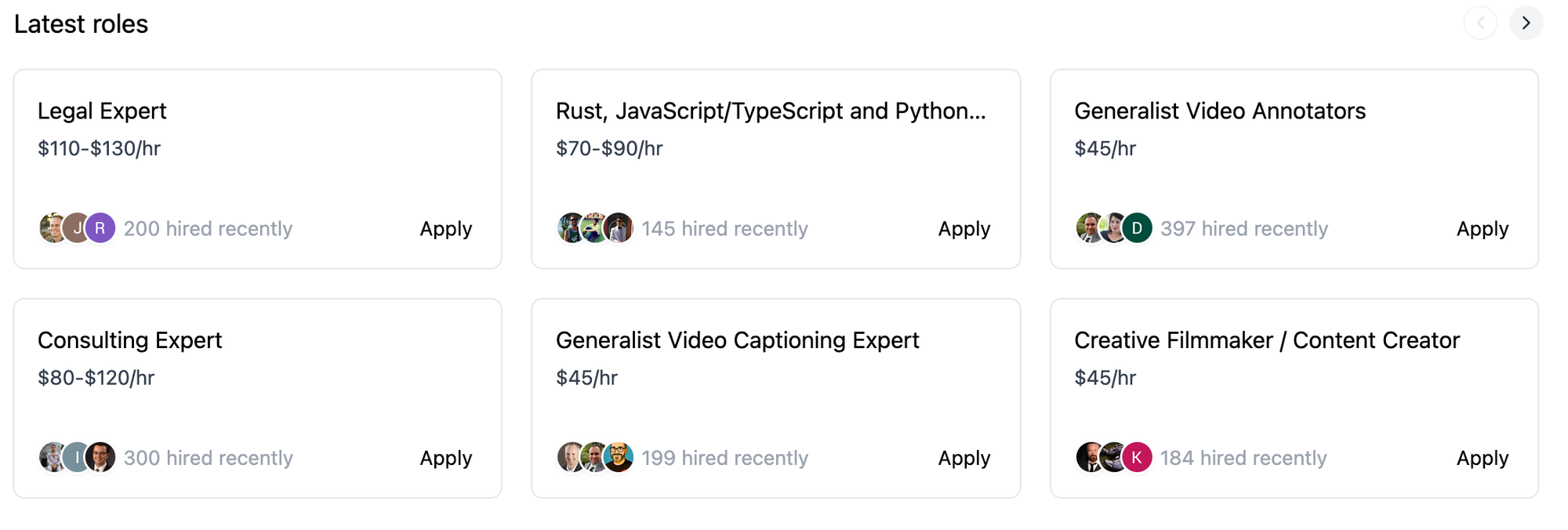Apple Pays $2 Billion to Read Your Face
Apple acquired Israeli startup Q.AI for close to $2 billion, gaining facial micro-movement technology that decodes silent speech for future wearables.

Good Morning from San Francisco,
Microsoft had an interesting week on the transparency front.
Australia's competition watchdog sued, claiming the company hid a cheaper option when it bundled Copilot into Office 365. Some 2.7 million subscribers got emails framing renewal as upgrade-or-cancel, with no mention of the keep-your-old-plan door. That option surfaced only after customers started canceling.
Meanwhile, Microsoft's OpenAI partnership lives in accounting limbo. A partner valued near $500 billion sits buried in footnotes under "other, net." No stake value disclosed. No revenue-share mechanics. Just a question mark where clarity should be.
Two stories. One theme: what you don't show matters as much as what you do.
Stay curious,
Marcus Schuler

Australia's competition watchdog sued Microsoft for allegedly misleading 2.7 million subscribers about their options when the company bundled AI assistant Copilot into Microsoft 365 plans.
The ACCC says Microsoft sent emails in October 2024 framing renewals as a binary choice—accept the AI features with a 45% price increase or cancel—while hiding a third option that kept Office apps at the old price without Copilot.
The Classic plan appeared only after customers started canceling, buried several clicks into the account flow. Personal plans jumped from $109 to $159 annually; Family plans rose from $139 to $179.
The case tests whether essential software providers must disclose material alternatives as prominently as upgrades when switching costs are high.
The ACCC wants penalties, injunctions, and consumer refunds. Microsoft faces up to $50 million per violation or three times the benefit gained.
Why this matters:
• Essential software plus auto-renewal means disclosure design shapes outcomes as much as price itself.
• As AI gets bundled by default, regulators will demand clearer opt-outs when new features trigger higher bills.


Prompt:
A black and white artistic portrait photograph with dramatic lighting. The image shows a close-up of a woman's face and a man's hand from behind. The woman has sleek, pulled-back hair and is wearing a white top. Her face is turned slightly to the side, showing defined cheekbones and a contemplative expression. The man's hand enters the frame from the right, wearing multiple rings including a prominent diamond ring. The lighting creates strong contrast between light and shadow, with the left side of the image well-lit and the right side in shadow. The composition is intimate and moody, with the hand delicately positioned near the woman's face. The image has a high fashion editorial quality with sharp detail and professional studio lighting techniques.

Microsoft's OpenAI partnership drives its AI narrative, but the money trail is murky.
The company buried OpenAI-related losses in a $4.7 billion "other, net" line—no stake value, no revenue-share mechanics, no related-party detail. That's odd for an equity-method investment, which implies significant influence and usually triggers disclosure.
The scale demands clarity. OpenAI's now valued near $500 billion after a secondary sale. If Microsoft owns a meaningful slice, the implied fair value could dwarf the $6 billion it reports for all equity-method investments combined.
Meanwhile, OpenAI's cutting revenue share to partners from 20% toward single digits by decade's end—shifting Microsoft's upside from contractual flows to Azure consumption and long-dated equity value. Without note-level detail, investors can't map that shift to margins or cash.
Why this matters:
• Valuation risk: A partner valued at $500 billion makes the stake—and revenue-share cash—too big to hide in "other, net." Clear numbers reduce the discount investors apply.
• Forecast quality: Models for Azure uplift and equity-method swings are guesswork without related-party detail and recognition policies.


Tasklet automates any business process using plain English. It connects to thousands of apps, works with any API or MCP server, and can even control a computer in the cloud to handle recurring tasks 24/7.
Tutorial:
Our company changed direction. Here's what happened and why:
[insert context and changes].
I need to help my team understand this shift and stay focused. Give me:
Context to include:
Team size and function: [details]
What we were doing before: [details]
What worried the team about the old direction: [details]
Main concerns people will have: [details]
Timeline for the change: [details]
Keep the tone realistic. Don't oversell the change. Focus on what the team needs to know to do their jobs well.
California State University is pursuing an ambitious plan to transform into an "AI-empowered" university through strategic partnerships with Amazon and a significant $16.9 million investment to provide ChatGPT Edu access to all students and staff. The initiative includes new programs like AI Camp, a summer training program designed to integrate artificial intelligence tools and capabilities across the university system's educational framework.
JPMorgan Chase is providing employees with the option to use the bank's proprietary large language model to draft their year-end performance reviews, offering a technological solution to streamline what is typically a time-consuming annual task. The move allows staff to generate performance review content through their own prompts using the bank's in-house AI system, marking another step in the financial industry's adoption of artificial intelligence for routine business processes.
IBM has launched Digital Asset Haven, a new digital assets platform developed in partnership with crypto wallet provider Dfns, targeting financial institutions, governments, and corporate clients. The platform launch comes as cryptocurrency and digital asset activity continues to surge across various sectors.
The US Department of Justice has indicted defendants in a sophisticated poker cheating operation that involved hacking DeckMate card shuffling machines, casino-standard devices worth over $10,000 that are typically used to ensure fair play. The rigged-poker-game case reportedly involves high-profile figures including NBA stars and members of famous Mafia crime families, with perpetrators allegedly using the compromised shuffling technology to secretly reveal opponents' hands during games.
According to Reuters analysis of military papers, patents, and procurement documents, China's People's Liberation Army is actively incorporating domestic AI models DeepSeek and Qwen into advanced weapons systems, including AI-powered drones and autonomous targeting systems. The research reveals that PLA entities are developing AI capabilities for autonomous target recognition and battlefield decision support, while continuing to utilize Nvidia semiconductor chips despite ongoing technology export restrictions.
X is requiring users who utilize hardware security keys for two-factor authentication to re-enroll their devices by November 10, 2025, as part of the platform's plan to retire the Twitter.com domain. Accounts that fail to complete this security key update process will be locked after the deadline.
Indonesia and other developing countries are positioning themselves as major artificial intelligence hubs as part of a multitrillion-dollar global AI spending surge, driven by what experts call an "AI decolonization" philosophy. This movement sees developing nations actively pushing Silicon Valley technology companies to establish local operations and infrastructure rather than relying solely on Western-based AI development and services.
Samsung has appointed Mauro Porcini as its first Chief Design Officer in April 2025, marking a significant shift in the company's approach to product design and user experience. Porcini, previously with PepsiCo, is tasked with creating a "consistent experience" across Samsung's diverse device portfolio and addressing what has been perceived as uninspiring design throughout the company's product lineup.
Mercor, an AI contractor marketplace founded in 2023 by three college dropouts, is finalizing a $350 million funding round led by Felicis at a $10 billion valuation. The company has built a platform managing 30,000 contractors who specialize in training chatbots and AI systems, capitalizing on the growing demand for human expertise in artificial intelligence development.

Mercor connects AI companies with human experts who grade, fix, and improve model outputs. The San Francisco startup hit a $10 billion valuation in October 2025—up 5x since February—by building the data pipeline frontier labs need.
🎓 THE FOUNDERS
Three Bay Area classmates—CEO Brendan Foody, CTO Adarsh Hiremath, and COO-turned-chairman Surya Midha—launched Mercor in early 2023. They dropped out of Georgetown and Harvard, won Thiel Fellowships, and pivoted from recruiting software to expert data. The company employs about 30 full-time staff and manages 30,000+ contractors globally from San Francisco.
⚙️ THE PRODUCT
Mercor runs a two-sided marketplace wrapped in software. It sources and vets domain experts—doctors, lawyers, researchers—then routes them to tasks like preference ranking, policy alignment, and reasoning evals. An AI interviewer screens candidates and adapts in real time. Rates hit $120-$170/hour for physicians. The platform keeps 30-35% and passes the rest along. Customers include OpenAI and Anthropic.
🥊 THE COMPETITION
Scale AI dominates but sold 49% to Meta in June 2025, spooking other labs. That opened the door for neutral alternatives. Mercor competes with Surge AI, Outlier, Labelbox, and Appen. Its edge: high pay attracts genuine specialists, not clickworkers. Neutrality matters when labs won't share data with a rival's vendor.
💰 FINANCING
September 2024: $30M Series A at $250M (Benchmark). February 2025: $100M Series B at $2B (Felicis). October 2025: $350M at $10B (Felicis, Benchmark, General Catalyst). Investors include Jack Dorsey, Peter Thiel, Larry Summers. The company is profitable.
🔮 THE FUTURE ⭐⭐⭐⭐
Mercor rides the human-in-the-loop paradox: better AI needs more expert judgment at the edges. Scale AI's lawsuit over trade secrets is messy but survivable. If Mercor stays independent and keeps software doing the heavy lifting, it becomes the data utility labs can't avoid. Not glamorous. Necessary wins.
Get the 5-minute Silicon Valley AI briefing, every weekday morning — free.